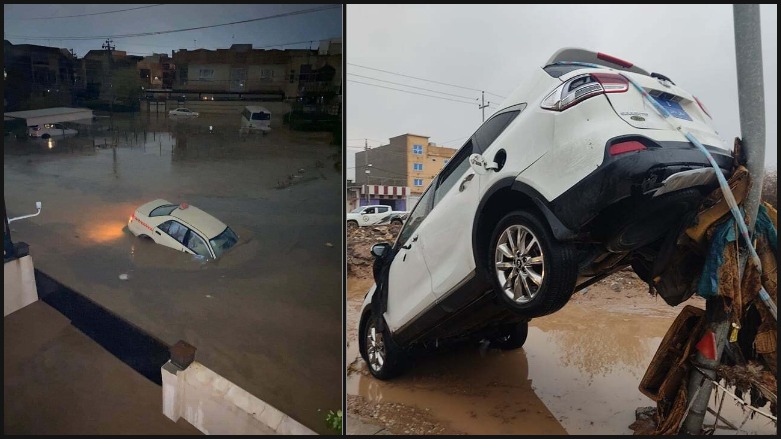Flooding, lightning kill at least 8 in Erbil outskirts: Governor

ERBIL (Kurdistan 24) – Heavy rainfall in the Kurdistan Region’s capital province of Erbil that began overnight on Thursday and into Friday morning has killed at least eight people as well as causing extensive material damage, the provincial governor told Kurdistan 24.
According to initial reports, all eight fatalities were among residents of the Daratoo neighborhood in southeast Erbil province, which was hit particularly hard by the flooding, said Governor Omed Khoshnaw.

The governor also confirmed that at least several private residences had sustained “significant damage.”
Seven of the victims were killed by the flooding, he explained, and the eighth died after being struck by lightning, he added.
According to Khoshnaw, local authorities had been properly prepared for normal seasonal flooding, but a large amount of rainfall in a short period of time overtook the local infrastructure.

He concluded by stating that “all the rescue teams are working to save people’s lives and to open roads now shut down due to flooding.”
This is the second recent instance of flash flooding in Erbil, with the previous occurrence taking place Oct. 30 in Erbil and also caused significant property damage.
Read More: Heavy rainfall in Kurdistan's Erbil leads to flash floods
Post-rain floods are a perennial issue in the Kurdistan Region and Iraq as a whole, caused in large part by insufficient infrastructure, including inefficient or poorly-maintained urban rainwater management and sewage systems.
